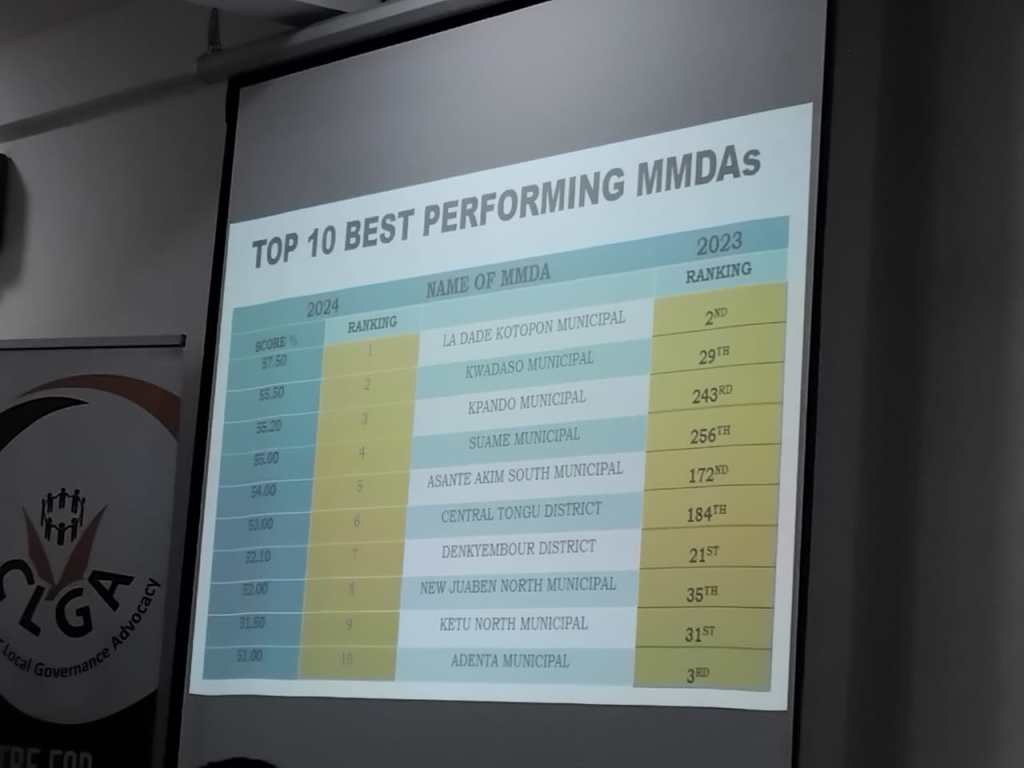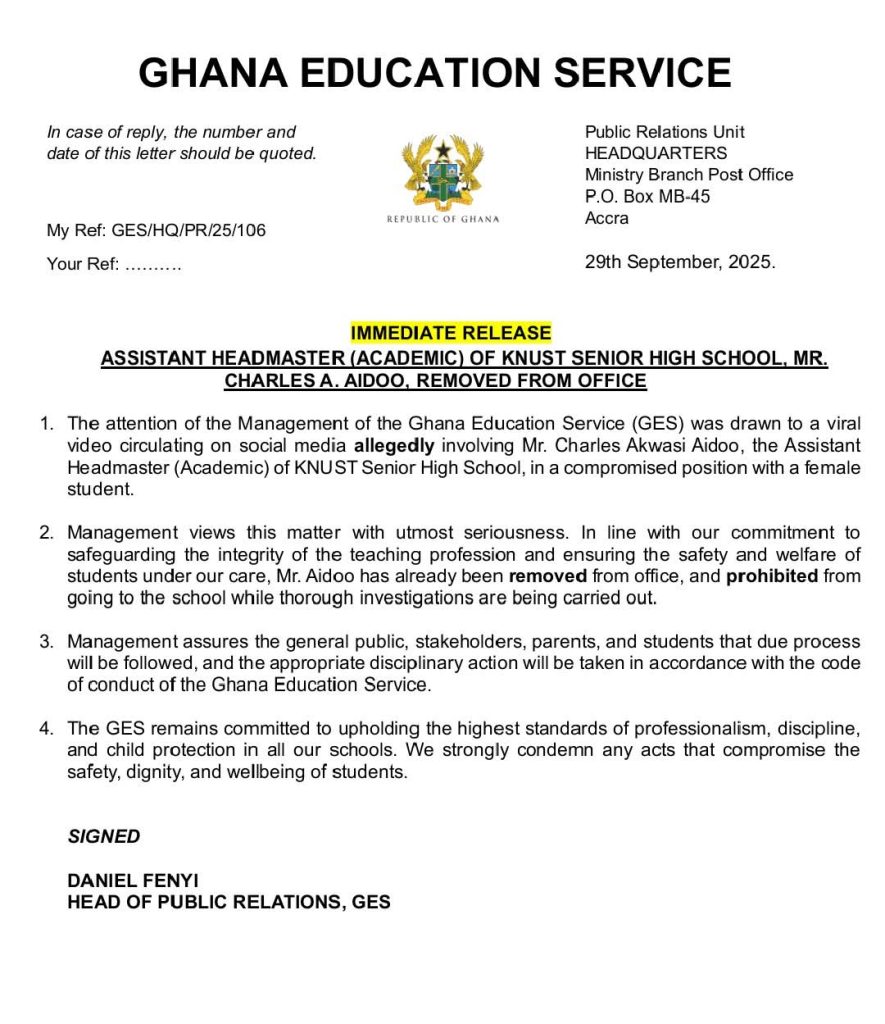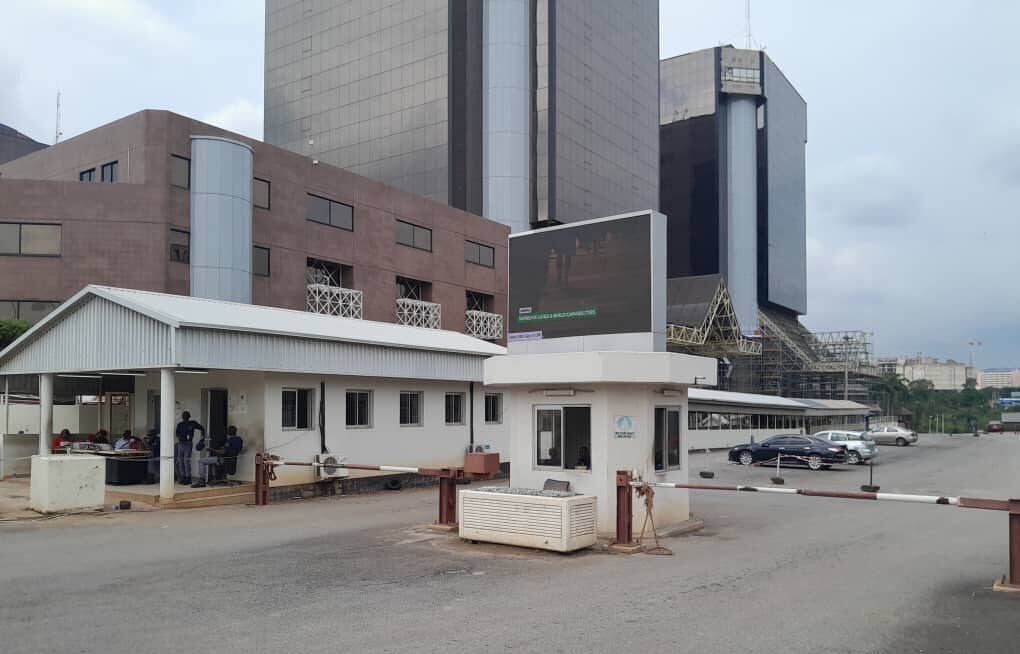
The Centre for Local Governance Advocacy (CLGA) has raised red flags over the poor state of financial accountability in Ghana’s local government system, after a damning report showed that the majority of Metropolitan, Municipal and District Assemblies (MMDAs) are failing to manage public resources properly.
The 2024 Public Financial Management Compliance League Table (PFMCLT) assessed 258 out of 261 assemblies nationwide, yet only 12 managed to score above the 50 percent benchmark. The national average stood at a paltry 33 percent, a marginal improvement over last year, but still a failing grade by any measure.
La Dade Kotopon emerged at the top, while Adenta, ironically part of the so-called “model municipalities,” slipped into the bottom of the top ten.

Speaking at a media engagement, the deputy executive director of CLGA, Gladys Tetteh, minced no words about the consequences of such poor accountability.
“When assemblies mismanage resources, the costs are clear — abandoned projects, broken infrastructure, unfinished schools, bad roads and wasted opportunities,” she said. “This is not just about numbers, it’s about the daily lives of citizens who are denied basic services.”
She stressed that the league table is not intended to shame assemblies but to push them into action. “The findings are meant to encourage learning, inspire healthy competition and drive reforms. But without vigilance from citizens, commitment from civil society and oversight from the media, the trend will not change,” she warned.
Tetteh insisted that transparency in local governance cannot be left to bureaucrats alone, but must be demanded by the people whose taxes are being squandered.
The CLGA says it will continue to push for reforms, but the bigger responsibility lies with Ghanaians to hold their assemblies’ feet to the fire.
“Public resources should benefit everyone, not just a privileged few,” Tetteh added.
The post CLGA demands accountability as MMDAs flop compliance test appeared first on The Herald ghana.





